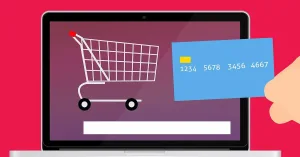
One of the biggest mistakes small business owners make is failing to properly separate their business and personal expenses. Whether you are buying goods and services for your business on your personal credit cards or going over budget, avoiding these costly mistakes will help you keep your personal credit intact.
Read on to learn more about protecting your business as well as your personal credit history.
Business Creditworthiness
Opening a business credit card is one of the most important steps you can take in the early days of your startup. Making timely payments is the key to building your creditworthiness and maintaining a positive score. The PAYDEX score, which vendors use to determine whether your business is safe to work with, is determined by your history of making timely payments. Even a single late payment can result in a lowered score, making it more difficult to find vendors in the future.
Maxing out your company cards is another common mistake that can have long-term consequences. While it may be tempting to use the maximum amount of credit at your disposal for advertising and other early costs, this damages your score and can actually hurt your personal finances if your business accounts are remotely linked.
Keep Personal and Business Expenses Separate
While some small business owners have no choice but to use their personal finances to build their businesses in the early stages of development, the clearer the line is between business and personal expenses, the less difficulty you will have as your business grows. Only using business accounts for business expenses not only makes things easier around tax time, when you are claiming your expenses and deductions, but it protects your personal assets as well. If your business runs into financial trouble, separate accounts will help prevent company spending from showing up on your consumer reports.
Establishing an LLC, C Corp or S Corp is the easiest way you can distinguish your personal and business finances. Legally recognized business structures simplify the process of filing your taxes and offer protections to keep your personal assets from being seized in the event that your business goes bankrupt.
Choose Loans Carefully
Credit unions often offer special incentives for small businesses and are known for providing more personalized customer service than many larger lenders. Small Business Administration loans are also ideal for many businesses since they are guaranteed by the government and offered through individual lenders. Researching each possibility will help you find the right loan for your business’ unique needs. In some cases, alternative funding such as a loan against your retirement funds or 401(k) plan may be preferable to a traditional loan as these types of loans do not register on consumer reports. While you are not allowed to take out a loan against an IRA, loans taken against 401(k) plans and retirement funds are often a safer means of funding your business than using your personal accounts.
Salaries and Emergency Funding
Always pay employees and vendors before taking a salary for yourself. An emergency fund eliminates strain on your business by allowing you to pay vendors and employees even if you have unexpected expenses or financial hardship. Any surplus funds can be taken as a salary or returned to your company. Start collecting for your emergency fund from the moment your business begins earning revenue to establish a sustainable financial foundation.
Get Insurance
An established legal structure and a solid emergency fund are only part of the equation when it comes to securing your business’ finances. From natural disasters to theft, insurance offers coverage and peace of mind in a variety of unanticipated circumstances. Types of insurance business owners should have include professional liability insurance, worker’s compensation, property insurance, and general liability insurance, among others.
Establishing a financially healthy business can be a long and difficult process, but these measures will help your small business succeed. They will also help protect your personal assets in the event that your business runs into financial difficulties. Without these important protections, you could end up losing your personal property or damaging your consumer history to pay for your business expenses.




















Add comment